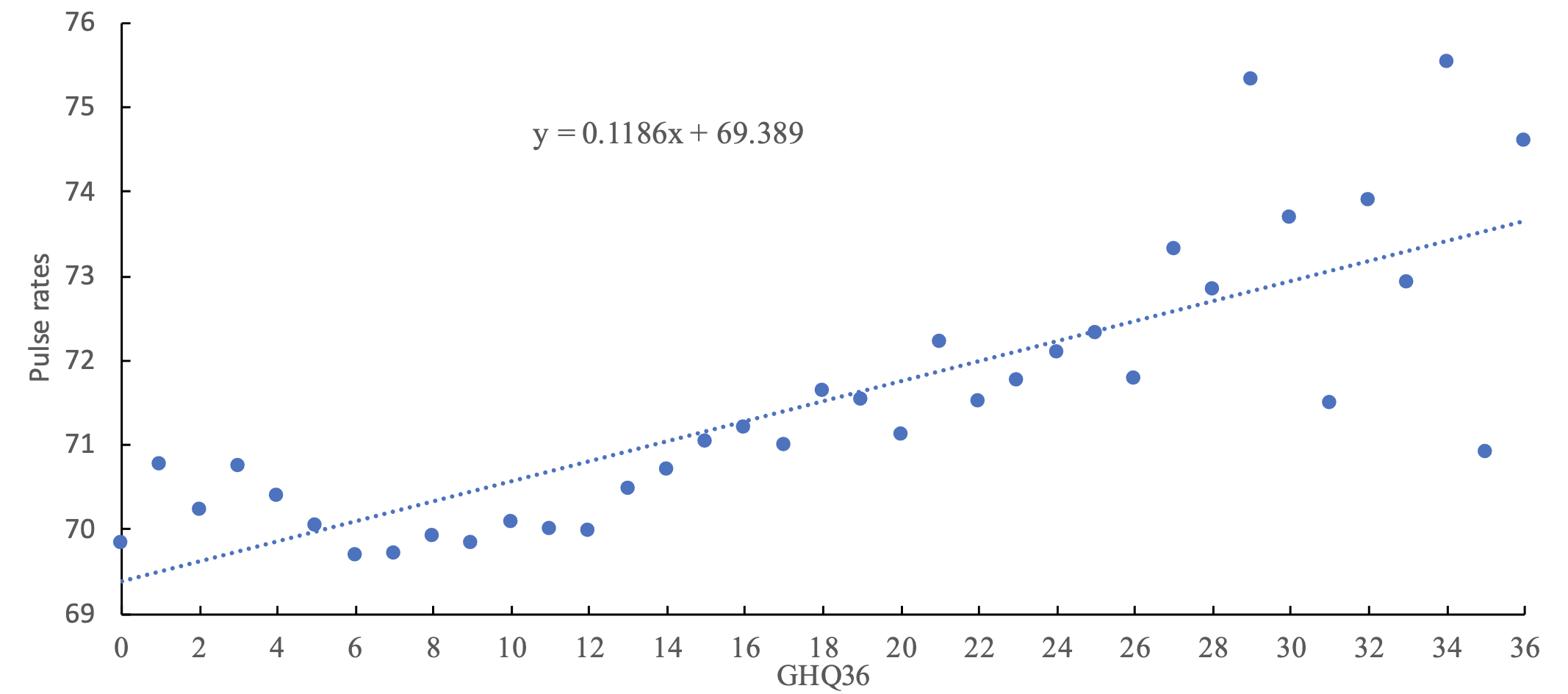Pulse rates have been overlooked as a potentially valuable way of capturing individuals’ wellbeing. The value of pulse rate as a wellbeing metric is that, unlike subjective wellbeing metrics, it is recorded on an objective cardinal scale. This column uses empirical analyses of the English and Scottish Health Surveys and the 1958 National Child Development Study to show pulse is highly correlated with subjective wellbeing, that pulse equations look very similar to those for subjective wellbeing, and that pulse is predictive of subjective wellbeing and labour market outcomes later in life.
We then go on to show that pulse is highly correlated with SWB in cross-section having controlled for personal characteristics. It is positively correlated with GHQ36 unhappiness scores with an r-squared of 0.66 (see Figure 1).
I’m planning to look at this in my own data. Has anyone had this observation?
Pulse measured under what conditions? Do you mean resting heart rate?
is this RHR ?
What do you mean by pulse rates? Resting heart rate? Heart Rate variability?
No surprise that there would be skepticism here about the utility of correlating pulse and unhappiness in retrospective observational studies.
When meditatively calm Pulse is different for sure. So how much zen & calm we are in life situations due to aggravating/ worrying emotions is key to gauging “stress” esp mental kinds these days.
Hmm, I think Meru Health have a study where they correlated HRV with depression. It’s definitely an interesting angle!
Resting heart rate has already been proven to demonstrate predictability of terminal illnesses, and then some. If we’re just looking at pulse, this is going to be a fun new data point to consider in daily lifestyle interventions.
